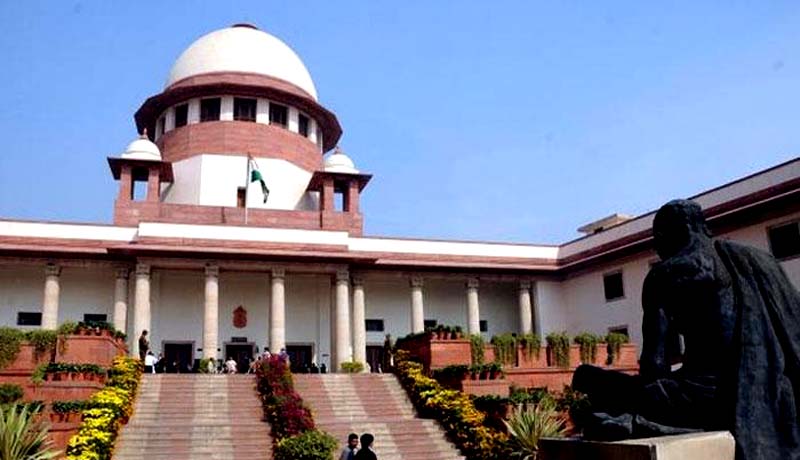Tribunals are the Final Fact Finding Authorities- High Court cannot intervene in such matters; Supreme Court [DOWNLOAD JUDGMENT]

High Court – Jurisdiction – Letters Rogatory – Supreme Court – taxscan
High Court – Jurisdiction – Letters Rogatory – Supreme Court – taxscan
The Division Bench of the Supreme Court comprising of Justice Ranjan Gogoi and Justice Prafulla C. Pant in the case, M/s Ganapati & Co. Bangalore v. CIT Bangalore upheld the power of the Income Tax Appellate Tribunal (ITAT) that it is the final fact-finding authority and any decision taken by the Tribunal regarding the relevance of a fact is final. Hence, the High Court cannot revise the Tribunal regarding the matter of fact.
The AO rejected the claim of disallowance of the service charges and donations by the assessee and passed the assessment on the basis of the following findings
- In the proceedings arising out of the Assessment Order for the previous year i.e. 1983-1984 the said claim had been negatived by the C.I.T. in appeal.
- The membership the assessee-firm and UTC are common and one K.L. Srihari had a sizeable holding in each of the two firms.
- The assessee had failed to provide proof of service rendered by UTC in the period covered by the relevant AY.
- During the course of search proceedings, the officer found a note of the Chartered Accountant which contained advice to the assessee to include service charges to UTC as one of the methods to reduce the incidence of IncomeTax.
The said order was upheld by the CIT(Appeals). However, the Tribunal, on appeal, reversed these conclusions and findings on the ground that in the course of said earlier assessment proceeding the legal effect of the advice tendered by the Chartered Accountant to reduce the incidence of Income Tax was found to be permissible in law. Further, the disallowance of donation made to Aparna Ashram by the assessee was refused by the Primary and First Appellate Authority on the ground that the necessary certificate showing that the donee (Aparna Ashram) had complied with the conditions subject to which registration was granted to it under Section 35(2A) of the Act was not produced by the assessee so as to entitle it to the claim of deduction of the donation made. The ITAT was of the view that the aforesaid conditions are not material.
Later, the High Court revised again revised the decision of the Tribunal in appeal.
The decision of the High Court was upon the view that the learned ITAT did not address itself to a very fundamental issue that had arisen before it, namely, effect of the failure of the assessee to produce evidence in support of the services claimed to have been rendered by UTC during the Assessment Year in question i.e. 1984-1985. The answer given by the assessee in response to a specific query made by the Assessing Officer in this regard was that explanations in this regard had already been submitted for the previous Assessment Year i.e. 1983-1984. If service had been rendered to the assessee by UTC during the Assessment Year in question and service charges had been paid for such service rendered, naturally, it was incumbent on the part of the assessee to adduce proof of such service having been rendered during the period under assessment. There is no dispute on the issue that the assessee did not, in fact, offer any proof of the service rendered during the relevant AY.
The Supreme Court sustained a portion of the High Court order in which the High Court upheld the legality of the assessment order on the ground of non-submission of proof regarding the claim made by the assessee. Further, the Court refused to accept the opinion of the High Court regarding disallowing the number of donations made on the ground that the ITAT went wrong in considering some important facts as “immaterial’. In this regard, Justice Ranjan Gogoi opined that “An issue on which there could be little dispute on law, nevertheless, needs to be dealt with in view of the elaborate arguments advanced on behalf of the appellant – assessee, namely, that the High Court had relied on findings of fact independent of those considered by the learned ITAT which is the final fact-finding authority.”
It was further held that the ITAT is the final fact-finding authority and it is beyond the power of the High Court to interfere with this power.
Read the full text of the Judgment below.
[googleapps domain="drive" dir="file/d/0B3j3oXdY53gVaUxPVE1xOGlRWlU/preview" query="" width="640" height="480" /]

